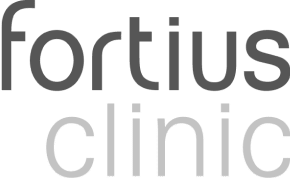Why Is Compliance and Security So Important in EMR Systems?
When it comes to healthcare, there’s nothing more critical than the security of patient data. Your patients trust you with their most sensitive information, and it’s your responsibility to protect it. At the same time, your EMR system must comply with various regulations to avoid potential legal issues. So, how can you ensure both compliance and top-level security?
Meddbase is built from the ground up to keep patient information safe while meeting all the necessary compliance standards like HIPAA and GDPR. Let’s take a closer look at how EMR compliance and security are handled by Meddbase to give both healthcare professionals and patients peace of mind.
1. HIPAA and GDPR Compliance
Meddbase ensures that your practice is fully compliant with HIPAA (Health Insurance Portability and Accountability Act) in the United States and GDPR (General Data Protection Regulation) in Europe.
- HIPAA Compliance: Meddbase adheres to all the requirements for protecting patient health information, including data encryption, secure communication, and access controls. This means healthcare providers using Meddbase can trust that their systems are aligned with US standards for patient privacy.
- GDPR Compliance: For healthcare practices in Europe, GDPR compliance is crucial. Meddbase makes sure that all personal patient data is collected, stored, and processed with strict adherence to GDPR requirements.
- Access Controls: Role-based permissions ensure only the right people have access to sensitive patient information.
External Resource: Learn more about GDPR requirements and why they matter for healthcare practices.
2. Data Encryption and Secure Access
One of the most effective ways to protect patient information is data encryption. Meddbase takes a multi-layered approach to secure patient data at every stage.
- Encryption in Transit and at Rest: Data is encrypted whether it’s being transferred between systems or stored within the Meddbase cloud. This reduces the risk of data breaches.
- Multi-Factor Authentication: Meddbase requires multi-factor authentication for accessing patient records, adding an extra layer of security beyond just usernames and passwords.
- Secure Remote Access: Since Meddbase is a cloud-based platform, it enables secure access from any location, making it perfect for remote consultations while still ensuring that patient data remains protected.
Related Content: Read about how Meddbase supports telehealth integration securely.
3. Role-Based Access Control (RBAC)
In a busy healthcare environment, not every team member needs the same level of access to patient data. Role-Based Access Control (RBAC) is an essential feature of Meddbase that helps healthcare providers manage data access effectively.
- Custom Permissions: Administrators can assign access levels based on roles—so that doctors, nurses, and administrative staff have different levels of data access.
- Minimise Risk: By limiting access to only the necessary data, the risk of data breaches and human error is significantly reduced.
RBAC is a key part of ensuring compliance, as it helps prevent unauthorised access and keeps sensitive information out of the wrong hands.
4. Audit Trails for Full Transparency
Compliance also means being able to track who accessed what and when. Meddbase maintains detailed audit trails for every interaction with the system.
- Track Data Access: Every time a patient’s record is accessed, modified, or shared, Meddbase logs the details. This transparency is crucial for both internal monitoring and compliance with regulations.
- Incident Management: If there’s ever a question about improper data access, audit trails make it easy to trace back through actions, providing clarity and accountability.
5. Automated Backups and Disaster Recovery
The safety of patient data isn’t just about encryption; it’s also about ensuring the data is always available, even in the worst-case scenarios.
- Automated Backups: Meddbase performs automatic backups regularly, reducing the risk of data loss.
- Disaster Recovery Plan: In case of a natural disaster or system failure, Meddbase has a disaster recovery plan in place to restore data quickly, ensuring healthcare providers can continue caring for their patients with minimal interruption.
Related Content: Discover how Meddbase’s cloud-based EMR offers reliability and efficiency.
6. Patient Consent Management
With stringent data regulations, managing patient consent is more important than ever. Meddbase offers tools to manage patient consent effectively.
- Digital Consent Forms: Easily collect and store patient consent digitally, ensuring compliance and reducing paperwork.
- Access and Sharing Controls: Patients can control who has access to their information, adding a layer of transparency and autonomy.
Patient consent management not only keeps your practice compliant but also builds trust with patients by giving them more control over their data.
External Resource: Learn about the importance of patient consent in data privacy.
FAQs About EMR Compliance and Security
How does Meddbase ensure compliance with GDPR and HIPAA?
Meddbase is designed to meet both GDPR and HIPAA standards, using data encryption, role-based access, and secure data handling practices.
What happens if there’s a data breach?
Meddbase has measures in place to respond to potential breaches, including detailed audit trails to identify the source and notify affected parties as required by law.
Is patient data encrypted?
Yes, patient data is encrypted both during transfer and when stored, ensuring maximum security.
Can patients control who sees their information?
Absolutely. Meddbase allows patients to manage consent and control who has access to their data.
Why Meddbase Is the Right Choice for EMR Compliance and Security
When it comes to EMR compliance and security, Meddbase has all the bases covered. From data encryption to GDPR and HIPAA compliance, and from audit trails to role-based access control, it’s designed to keep your practice safe, secure, and compliant.
Keeping patient information secure isn’t just about following the rules; it’s about building trust and ensuring that every patient feels their information is in good hands. With Meddbase, healthcare providers can focus on patient care without worrying about the safety of their data.
Want to find out more about how Meddbase keeps your data safe? Request a demo today.
Related Content:
- How Meddbase Enhances Workflow Efficiency in Clinics
- The Benefits of Cloud-Based EMR Solutions for Healthcare Facilities
External Resources:
When it comes to data security and compliance, Meddbase isn’t just checking boxes—it’s delivering peace of mind, both for healthcare professionals and their patients.













